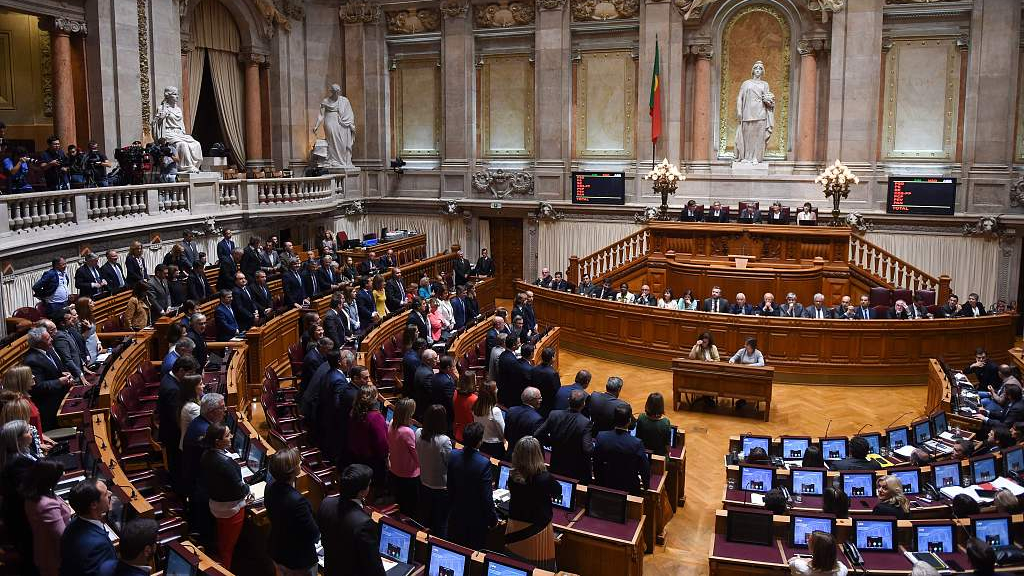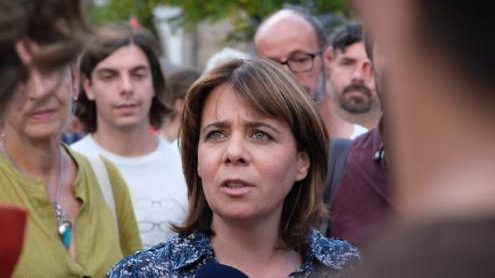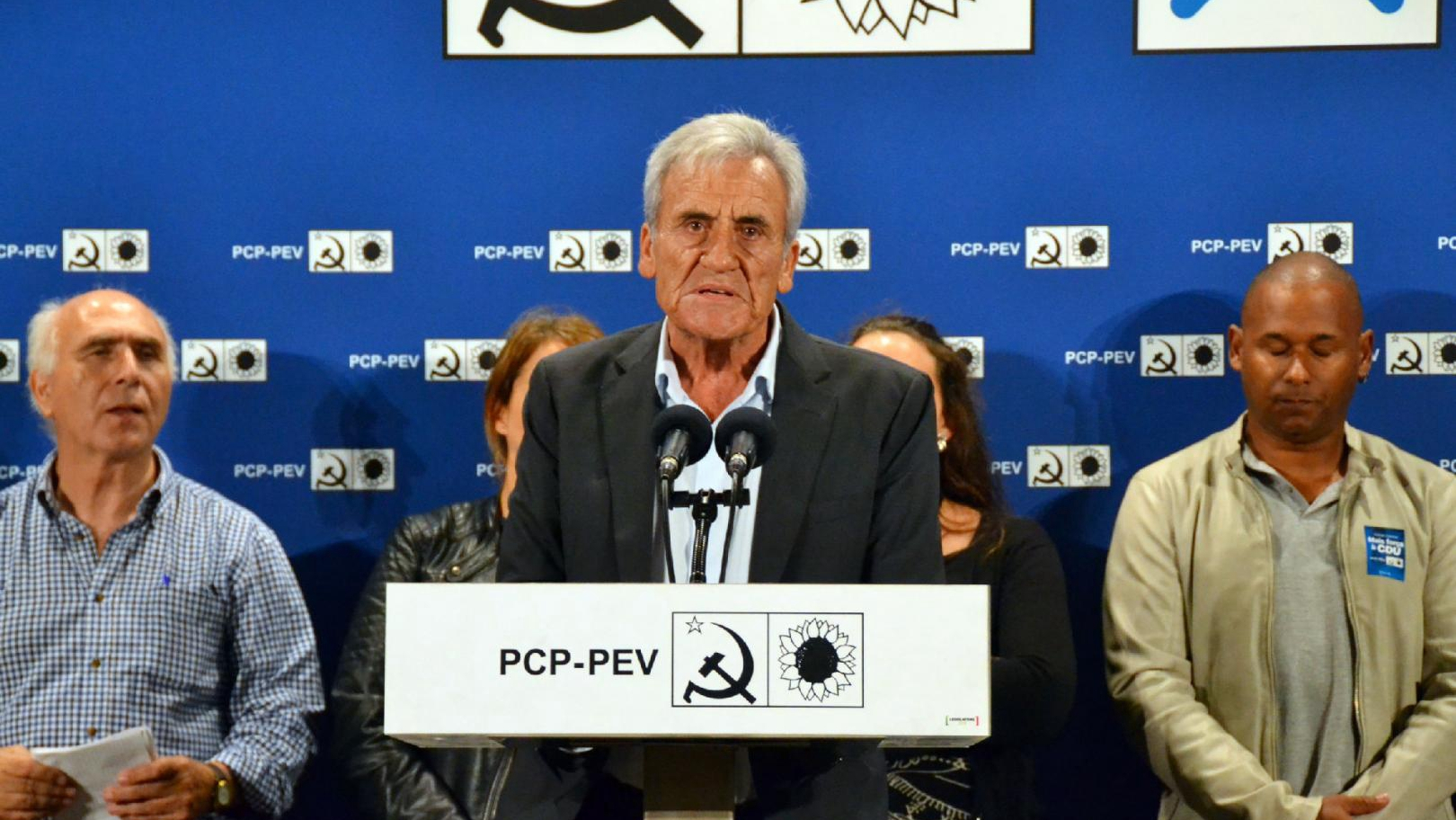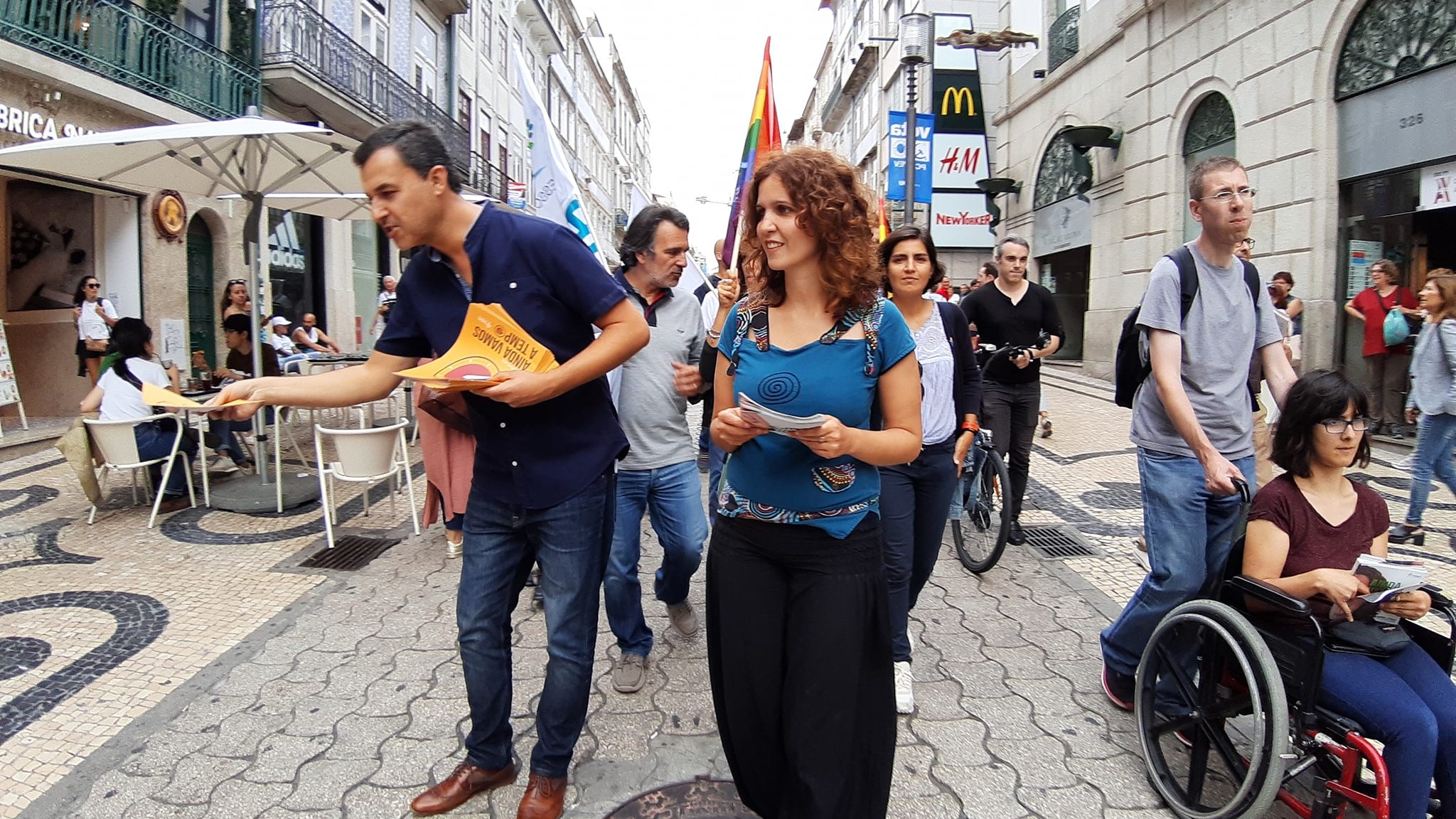
Deputies of right wing stand to vote at Portuguese Parliament in Lisbon on October 24, 2017. / VCG Photo
Deputies of right wing stand to vote at Portuguese Parliament in Lisbon on October 24, 2017. / VCG Photo
Next Sunday, October 6, 10.8 million Portuguese voters in Portugal and abroad will vote for the parliamentary election. 21 political forces are running for 230 seats. The ruling Socialist party and Prime Minister have been rooting for the full majority, but the latest poll says it might fall short.
A survey by the Catolica University pollsters for Publico daily and RTP television indicates that Prime Minister Antonio Costa's center-left party has 37 percent of all voting intentions, followed by main opposition, center-right Social Democrats with 30 percent.
According to Portugal's proportional representation voting system, a full parliament majority is theoretically achievable with 42 percent of the votes, although the cut-off is usually around 44-45 percent.
The results from this new poll show that the front-running Socialists fell two percentage points from the 39 percent poll conducted in May, also by Catolica. On the other hand, the Social Democrats are up to two percentage points from 28 percent.
For the Social Democrats, the positive evolution might mean some internal pacification, after the electoral results disaster in the European elections of May, which shook the party.
Helena Pereira from the Publico daily considers that "according to the data, the hypothesis of a full majority is unachievable," so the Socialists will need the support of other parties in the parliament to govern and pass legislation.

Socialist Antonio Costa during a campaign event in Viseu, October 2. / Antonio Costa official Facebook page
Socialist Antonio Costa during a campaign event in Viseu, October 2. / Antonio Costa official Facebook page
The end of the honeymoon in an unprecedented relationship
In the best scenario, it will only need another big party to reach the 116 deputies needed for the majority, either the Left Bloc or the Communists. In the worst scenario, it will need two parties.
In the current legislature, Costa allied himself with the hard left, the Left Bloc and the Communists, and created a governing pact. This was an unprecedented move since in the 2015 election it was actually the Social Democrats who won the most votes. But, Costa forged said alliance for parliamentary support and snatched the premiership from his predecessor.
This latest poll indicates that Left Bloc stood at 10 percent and the Communists at six percent. Helena Pereira notes that Left Bloc is now stronger and can have up to 24 seats in the parliament and the Communists (PCP) are weaker. Right now, PCP in coalition with PEV has 17 seats but they might lose and stay with only 13. Symbolically wise, the party risks not electing a representative in the historical district of Evora, Alentejo, where one of the first communist centers opened in 1921.
Costa ruled out the possibility of forging a formal coalition and instead said he preferred to continue with the present pact, work in a minority or without signed agreements. "It's best not to ruin a good friendship with a bad marriage," Costa told the TVI channel in August.
"The country needs to maintain stability and good policies. One of the keys to stability in the last legislature was each party keeping its identity. Had we had a formal coalition, the solution would have been much less stable," he added, quoted by Reuters.

Catarina Martins, Left Bloc leader, July 2019. /Photo via Left Bloc official information portal: Esquerda.net
Catarina Martins, Left Bloc leader, July 2019. /Photo via Left Bloc official information portal: Esquerda.net
The relationship between the Socialists and Left Bloc has been going sour in the last months. For example, in a TV debate, Costa criticized the Bloc's political program of being unrealistic with a drastic rise in public expenditure, because it intends to nationalize several companies. On the other side, Catarina Martins, the Bloc's leader, said the socialist's program is not concrete and lacks the financial explanations and accountability to demonstrate how they plan to achieve certain objectives, like increase civil servants numbers.
In the same debate, both political leaders admitted that the country stability is crucial. Catarina Martins said the "Bloc never failed in giving stability to the people."
"We learned to work together and to have mutual respect. Democracy is based on alternatives, no matter the majority degree, a dialogue will be present. I didn't start a dialogue to be the one that closes that door," Costa said about the three-party pact solution.
On the other hand, for Costa the relationship with PCP is stable and not subject to "mood swings."

Jeronimo de Sousa, PCP Secretary General. / Photo via PCP coalition official website CDU
Jeronimo de Sousa, PCP Secretary General. / Photo via PCP coalition official website CDU
Environmental party can be a kingmaker
Under this context, Costa could try and look for another partner and the People-Animals-Nature party (PAN) is seen as a potential new kingmaker.
The poll shows that PAN can reach the three percent votes, going from a single-seat won in 2015 to four in this year's election. This can be a "surprise" according to Helena Pereira. The party is getting stronger, due to its attractiveness to young generations of voters.
To Reuters, PAN leader Andre Silva said his party "does not see itself in the obsolete left-right dichotomy." It is open to backing the government in parliament if it commits to making "a clear change in our productivist, oil-dependent, highly carbonized economy," he said.
This green party defends a more humane treatment of animals, lower taxes on pet food, it opposes bullfights, and urged the government to declare a climate emergency. Unlike the far left, it is not opposed to European budgetary rules or Portugal's NATO commitments.
In the current legislature, PAN has supported Costa's government budgets, and the Prime Minister even said, publicly, that there is no division in terms of objectives.

PAN leader Andre Silva (on the left) distributing campaign leaflets in Porto city, Portugal. / Photo via PAN official Facebook page
PAN leader Andre Silva (on the left) distributing campaign leaflets in Porto city, Portugal. / Photo via PAN official Facebook page
Controversy: A "must" during elections
This Catolica survey to 3,226 people on September 26 to 30, with a margin of error of 1.7%, was conducted after bombastic news about a former Socialist minister facing trial, over his alleged role in a suspected army cover-up of a theft of weapons.
The revelation became one of the hottest subjects during the campaign, since the former minister, Azeredo Lopes, who denies the allegations, served as the defense minister from November 2015 to October 2018, when he resigned amid an investigation into the theft.
The theft of grenades, anti-tank rockets, other explosives and ammunition from a military arms depot was discovered in June 2017. In October the same year, the military police recovered the weapons.
Nine defendants will stand trial accused of planning and carrying out the theft, terrorism and drug trafficking. The other 14, including the former minister, were accused of abuse of power, favoritism, denial of justice and misfeasance. The 23 defendants include military personnel.
(With Reuters input)